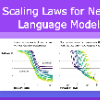This paper considers the unsourced random access (URA) problem with a random and unknown number of active users in multiple-input multiple-output (MIMO) quasi-static Rayleigh fading channels. We derive non-asymptotic achievability bounds on the probability of incorrectly estimating the number of active users, and provide scaling laws on the gap between the estimated and true numbers of active users. We prove that the error probability reaches a plateau as the power $P$ and blocklength $n$ increase, whereas it decays exponentially with the number $L$ of receive antennas and eventually vanishes. Then, we explore the fundamental limits of URA by deriving non-asymptotic achievability bounds and converse bounds (including two single-user converse bounds and one multi-user ensemble converse bound) on the minimum energy-per-bit required by each active user to transmit $J$ bits with blocklength $n$ under misdetection and false-alarm constraints. Numerical results show that the extra required energy-per-bit due to the uncertainty in the number ${\rm{K}}_a$ of active users decreases as $L$ and $\mathbb{E}[{\rm{K}}_a]$ increase and the error requirement becomes milder. In the non-asymptotic regime, using codewords distributed on a sphere outperforms Gaussian random coding. Existing schemes are shown to exhibit a large gap to our bounds when the number of active users is large, calling for more advanced schemes that perform energy-efficiently in this case. In the asymptotic regime with $n\to\infty$, we establish scaling laws on the minimum required $P$ and $L$ to reliably support ${\rm{K}}_a$ active users as functions of $n$, which highlight the potential of MIMO in enabling low-cost communication and indicate that it is possible for the minimum required $P$ and $L$ to remain on the same order when the number of active users increases but stays below a threshold.
翻译:暂无翻译



